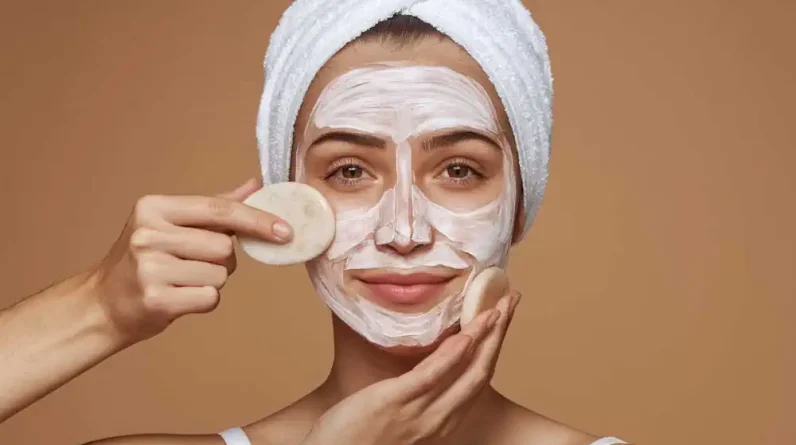Winter is a time when the weather can take a toll on your skin, leaving it feeling dry, itchy, and dehydrated. To keep your skin looking and feeling its best during the colder months, it’s important to adopt a winter skincare routine that nourishes and protects your skin from the harsh elements. Here are some tips for maintaining healthy, hydrated skin during the winter.

Moisturize Regularly
Moisturizing your skin helps to lock in moisture and protect your skin from dryness. This is especially important in the winter when the cold, dry air can strip your skin of its natural oils. Moisturizers work by forming a protective barrier on the surface of your skin, which helps to prevent moisture loss. They can also contain ingredients that help to improve the appearance of your skin, such as glycerin, which draws moisture from the air and binds it to your skin.
There are many different types of moisturizers available, ranging from lotions to creams to oils. Some options for nourishing moisturizers include coconut oil, which is rich in fatty acids and can help to deeply moisturize the skin, or shea butter, which is a thick, creamy moisturizer that is especially effective for dry skin.
Use a Humidifier
Indoor heating can lower the humidity in your home or office, which can lead to dry, itchy skin. Using a humidifier can help to add moisture to the air and keep your skin hydrated. Research has shown that using a humidifier can help to reduce the symptoms of dry skin, such as itching and flakiness.
There are many different types of humidifiers available, including cool mist humidifiers and warm mist humidifiers. Some humidifiers also have extra features, such as aromatherapy, which can add a pleasant scent to the air.
Protect Your Skin from the Elements
Cold, windy weather can be harsh on your skin, causing it to become dry and damaged. To protect your skin from the elements, it’s important to cover your face with a scarf or hat when you’re outside, and to use a lip balm to prevent your lips from becoming chapped.

Applying a moisturizer with SPF to your skin can also help to protect it from the sun’s harmful UV rays, which can still be present even in the winter. You can also use a lip balm with SPF to protect your lips from chapping. Some options for natural lip balms include coconut oil or beeswax.
Exfoliate
Exfoliation is the process of removing dead skin cells from the surface of your skin. This can be done through the use of physical exfoliants, such as scrubs or brushes, or chemical exfoliants, such as alpha-hydroxy acids or beta-hydroxy acids. For a natural physical exfoliant, you can try using an oatmeal bath, which can help to gently exfoliate and soothe dry, itchy skin.
Exfoliating your skin can also help to improve its texture and appearance, as well as unclog pores and help prevent acne. It’s especially important to exfoliate in the winter when your skin may be dry and flaky.
Stay Hydrated
Drinking plenty of water is important for maintaining healthy, hydrated skin. Water hydrates your skin from the inside out, and helps to flush toxins out of your body and keep your skin looking plump and youthful. It’s recommended to drink at least 8 cups of water per day, but you may need to drink more depending on your activity level and the climate you live in. Dehydration can cause your skin to become dry, dull, and more prone to wrinkles, so make sure to drink plenty of water to keep your skin looking its best.
In addition to water, you can also try incorporating other hydrating beverages into your diet, such as herbal teas or coconut water. You can also use a facial spray or facial mist to add moisture to your skin throughout the day.

It’s important to remember that your winter skincare routine should not just be limited to your face. Your skin is the largest organ in your body, and it’s important to take care of it from head to toe. In addition to moisturizing your face, be sure to also moisturize the rest of your body regularly to keep your skin hydrated and nourished. You can also use a humidifier to add moisture to the air in your home or office, which can help to keep your skin hydrated all over your body. And don’t forget to protect your skin from the elements by covering up from head-to-toe when you’re outside. By taking care of your skin all over your body, you can help to maintain healthy, radiant skin all winter long.
By following these tips, you can keep your skin looking and feeling its best during the winter months. Don’t forget to consult with a dermatologist if you have any concerns about your skin or if you’re unsure about which skincare products are right for you.





